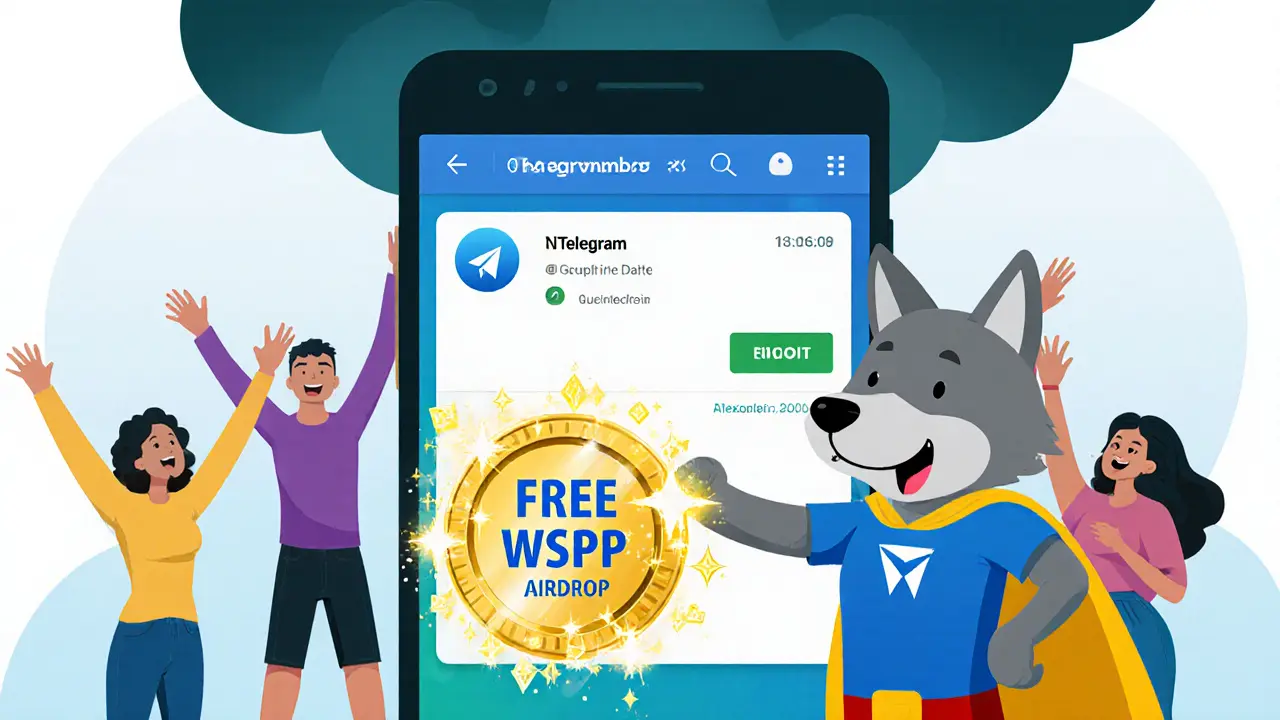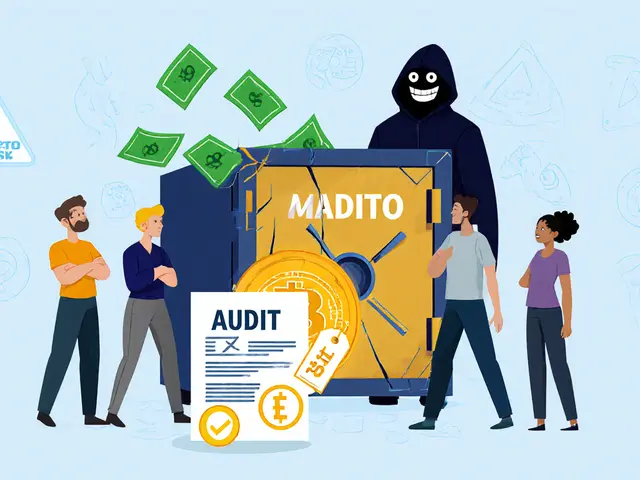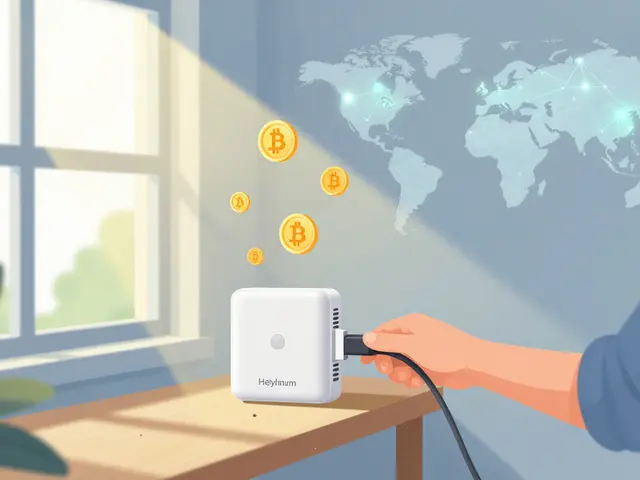WSPP Airdrop Value Calculator
This calculator helps you understand the real value of WSPP tokens being offered in airdrop scams. Based on the article, WSPP has a price of $0.00000000007 per token with 13.5 quadrillion tokens in circulation.
You’ve probably seen headlines promising a free WSPP airdrop that will help fight world poverty. The buzz sounds good, but the reality is far messier. Below we break down what the WSPP token really is, why the so‑called airdrop is likely a scam, and how you can keep your wallet safe.
What is WSPP (Wolf Safe Poor People)?
WSPP (Wolf Safe Poor People) is a cryptocurrency that bills itself as the first token with a program to reduce global poverty. It lives on two blockchains: the Binance Smart Chain (Binance Smart Chain) and Polygon (Polygon). The BSC version trades under contract 0x46d5…33d36f, while the Polygon version has its own address.
The tokenomics are extreme: a circulating supply of 13.5 quadrillion tokens and a market price that hovers around 0.00000000007 USD per token. Such micro‑pricing is typical of meme‑style coins that rely on hype rather than real utility.
The Alleged Airdrop - What Was Promised?
Promoters claim the airdrop will distribute free WSPP tokens to anyone who signs up on a Telegram channel, completes a short survey, or forwards a message. The pitch reads like a charitable mission: “Join the fight against poverty and get free tokens today!” In reality, there is no official listing on reputable airdrop tracking sites, and the only communication channel is a Telegram group @robowolfproject that shows no public metrics or verified admins.
Even the project’s own website offers a vague “airdrop” page with a single “Apply Now” button that redirects to an external link. The link asks for your wallet address, and in many reports it also asks for private keys - a classic red flag.
Red Flags - Why WSPP Looks Like a Scam
- Price and supply mismatch: A $0.00000000007 price combined with 13.5 quadrillion supply means the total market cap is under $1 million, despite the lofty poverty‑relief claims.
- Lack of major exchange listings: The token is absent from Binance, Coinbase, and other top exchanges. Low liquidity (< $10 k 24‑hour volume) makes selling almost impossible.
- Questionable audit claims: The project says it was audited by Solidity Finance, but no audit report, date, or findings are publicly available.
- No verifiable impact: There are no contracts or transparent wallets showing that any funds are going to charitable organizations. Compare that with GiveDirectly, which publishes detailed distribution reports.
- High transfer taxes: Users on Binance Community forums reported hidden sell taxes over 95%, effectively trapping tokens in the wallet.
- Phishing‑style requests: The airdrop form often asks for private keys or secret phrases - a surefire way to lose funds.
All these points line up with the patterns outlined by the SEC’s 2023 Crypto Enforcement Report, which flagged charity‑themed tokens as high‑risk scams.
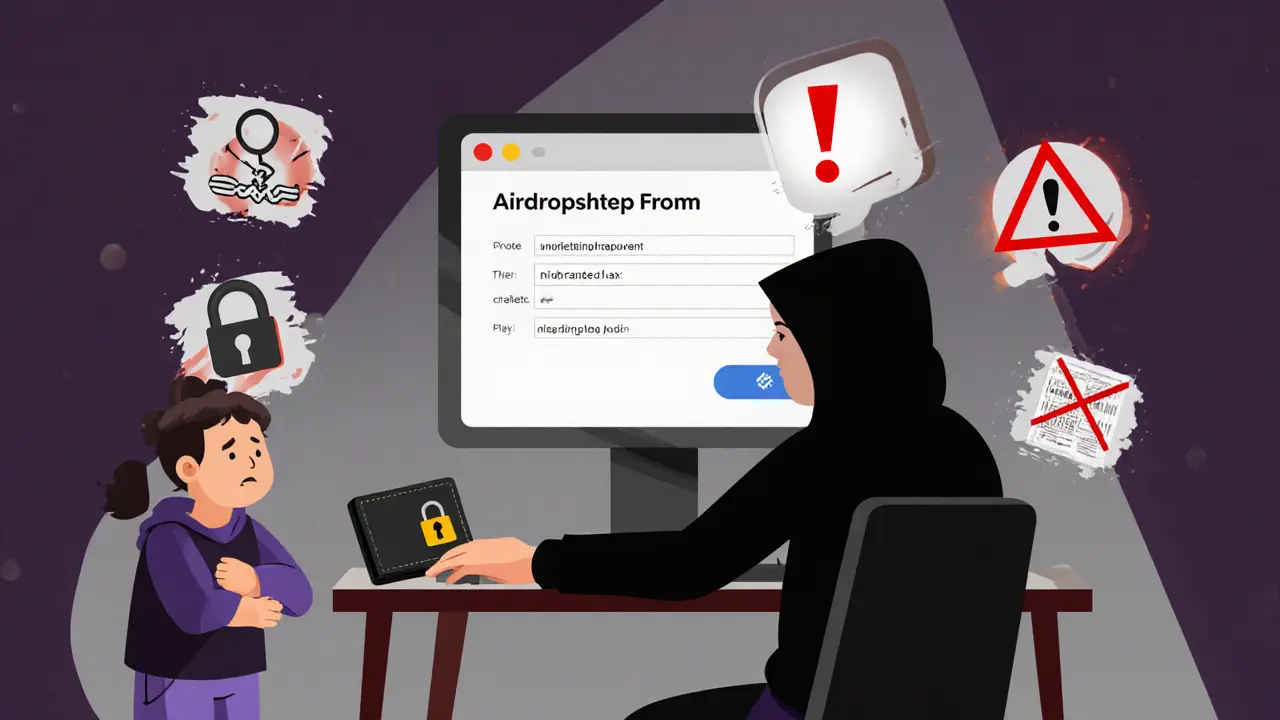
How to Spot a Legitimate Airdrop
- Check the official website for a clear roadmap, audited smart contracts, and transparent fund flows.
- Verify the project on reputable tracking sites like CoinMarketCap, CoinGecko, or AirdropAlert.
- Look for listings on reputable exchanges; a real airdrop usually follows a listing or partnership announcement.
- Never share your private key or seed phrase. Legitimate airdrops only need a public wallet address.
- Read community feedback on Reddit, Twitter, or trusted forums. Consistent negative reports are a warning sign.
If any of these steps fail, walk away.
Comparison with Real Charity‑Focused Tokens
| Metric | WSPP | GiveDirectly Token (hypothetical) | AidCoin |
|---|---|---|---|
| Purpose | Claimed poverty reduction, no proof | Direct cash transfers backed by NGO audits | Funding verified charitable projects |
| Market Cap (Oct 2025) | ≈ $0.95 M | ≈ $500 M | ≈ $30 M |
| Exchange Listings | None on major exchanges | Binance, KuCoin | Binance, Bithumb |
| Audit | Unverified claim by Solidity Finance | Audit by CertiK, published report | Audit by Trail of Bits, public |
| Transparency | Opaque fund flow, no impact data | Quarterly impact reports, live dashboards | Monthly audit logs |
The table makes it clear: real charity tokens have measurable impact, audits, and exchange support. WSPP falls short on every front.
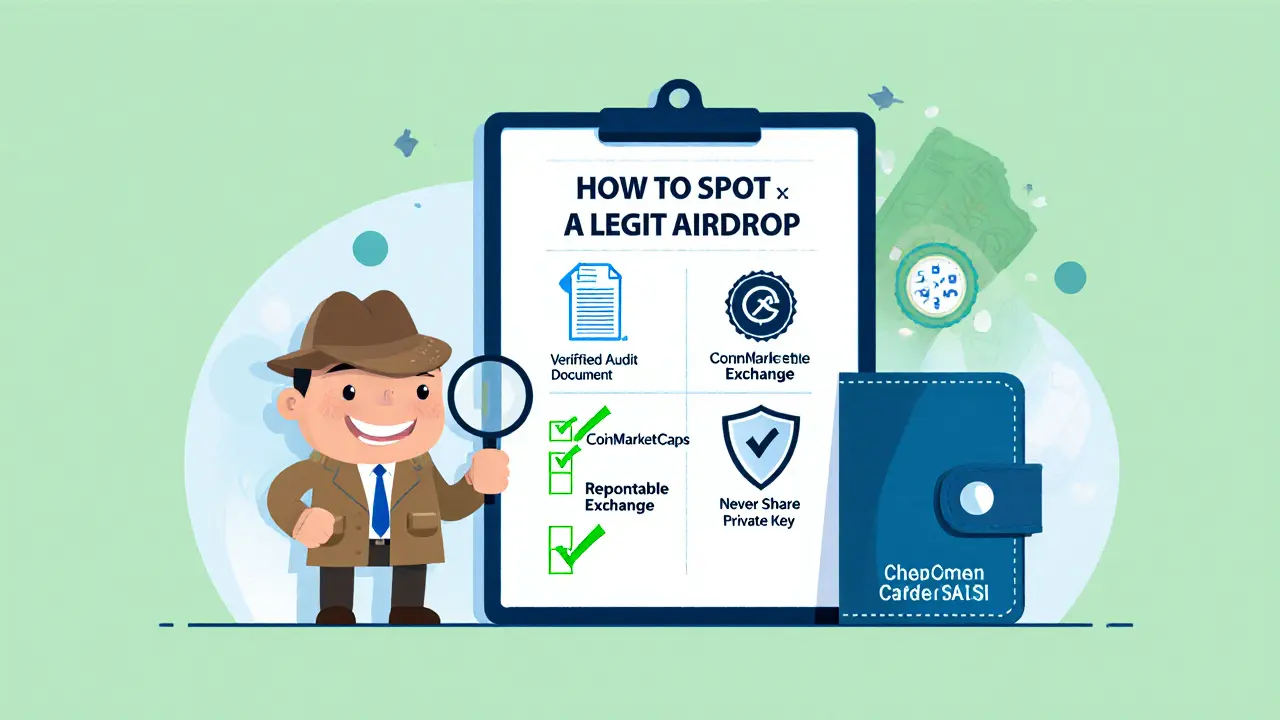
What to Do If You’ve Already Sent Tokens or Private Keys
First, stop any further transactions. If you entered a private key on a website, assume the key is compromised. Move any remaining assets to a new wallet with a fresh seed phrase.
Second, report the address to the exchange you use (or to the platform where the scam originated). Many exchanges have a “Report Scam” feature that can freeze malicious accounts.
Third, keep a record of the incident - screenshots, transaction IDs, and chat logs. This can help authorities, and it also alerts other community members.
Finally, educate yourself about the warning signs we listed earlier. The next time a “free token” pops up, you’ll know exactly what to check.
Bottom Line
WSPP tries to masquerade as a philanthropic crypto, but the data tells a different story: tiny market cap, massive supply, no audit, no exchange listings, and a community full of loss reports. The alleged airdrop is almost certainly a phishing or pump‑and‑dump scheme. Treat any “WSPP airdrop” offer with extreme skepticism and protect your wallet by following the verification steps above.
Is there an official WSPP airdrop?
No. The project does not appear on any reputable airdrop tracking site, and the only channel promoting it is a Telegram group that asks for private keys. It's safest to ignore the claim.
How can I verify a crypto audit?
Look for a public report on the auditor’s website, a link to a PDF, and a date. Audits that are only mentioned in vague text without a downloadable file are suspicious.
What are the risks of sharing my private key?
Your private key is the only thing that can move funds from your wallet. If you share it, anyone can steal every token you own. Never give it out, even if the site promises free tokens.
Are there any legitimate charity tokens I can support?
Yes. Projects like GiveDirectly’s token (which partners with audited NGOs) and AidCoin provide transparent reports, regular audits, and are listed on major exchanges.
How do I protect myself from airdrop scams?
Stick to the verification checklist: check official sites, look for audit reports, confirm exchange listings, avoid sharing private keys, and read community feedback before acting.
